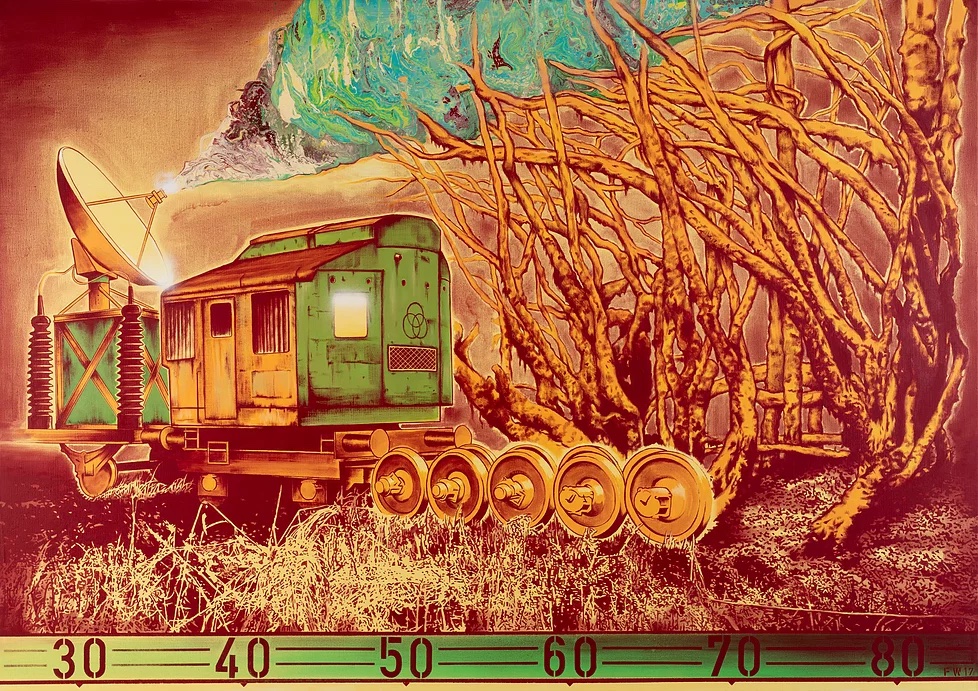“I want to be a witness of my time…”
Paul Zimmerman in conversation with Fant Wenger
Paul Zimmerman: How did you get interested in art?
Fant Wenger: The need to be creative started in my childhood! I used to draw with my father a lot, and while I was in school I was hired to paint a mural. I think that was the first time I met art! This gave rise to the need to express myself artistically and to think about what art is.
PZ: Your work is often focused on the clash of nature and technology. Why is it important for you?
FW: Nature and culture are opposites, and between these we humans experience and impress each other. Finding the balance between them is something very contemporary for me. As an artist I want to be a witness of my time and move in my artistic practice in the border regions of these opposites.
PZ: What is your artistic process? How do you create your paintings?
FW: Current events, emotions and aesthetics are very important in my artistic process. I see myself as a researching and searching artist. Between abyss and beauty my visual worlds arise because I am convinced that we all move in them. I don’t always use painting for this, video, audio, performance or sculptures also include my art, because I want to reach people in different ways.
PZ: Do you have any particular goal in mind when your start a new piece?
FW: The idea for an artistic work often comes up in peripheral places, because that’s where I discover something new! For me, being an artist includes curiosity and the willingness to take risks and get me where I want to go!
PZ: How do you know when a painting is finished?
FW: I think for many artists it is always a challenge when an artistic work is finished. For me it is sometimes a long process until I find peace with my work. However, I think that this is one of the challenges that come with being an artist. It seems important to me that we as artists stand behind our work.

PZ: Has your practice changed over time?
FW: Of course, my practice has changed over time! That’s a good thing, I need the change, to go new ways, to try new things and to find new forms of expression! For me these are clues that show me that I am developing as an artist.
PZ: Which artists are you most influenced by?
FW: I think a lot of artists influenced and inspired me, in my youth they were mainly surrealists like Salvador Dali, Max Ernst or Wilhelm Busch! From contemporary artists, these are certainly Neo Rauch, Adrian Ghenie or Aris Kalaizis. All of them from the Leipzig School, which would definitely have been my favorite academy.
PZ: How would you define art?
FW: In my opinion, what art is or should be is defined too much by commercial people today! For me, art is first and foremost expression! However, I also claim that art is news and contemporary witnesses of individual perceptions that inspire people in a variety of ways! I think these are the true values of art!
PZ: What are you working on now?
FW: At the moment I’m still working on the Frequency series! Since 2016 this topic has allowed me to reach people with different media and to develop myself as an artist! Frequency includes painting, installation, video / audio and performance. What shows that art had many forms of expression and freedoms that we artists are allowed to live out.
PZ: How does the pandemic influence your work and sensibility?
FW: Pandemics have not harmed art in the past! For me it was an impetus to think more about the uniqueness of our time! An honor to live in this time as an artist, but also a challenge! It is the task of the avant-garde to let these topics flow into their work, which shapes and forms this pandemic brings about, and which consequences this brings with it!
